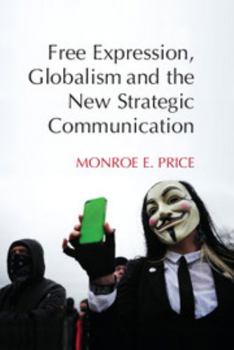Free Expression, Globalism, and the New Strategic Communication
Vast changes in technologies and geopolitics have produced a wholesale shift in the way states and other powerful entities think about the production and retention of popular loyalties. Strategic communication has embraced these changes as stakes increase and the techniques of information management become more pervasive. These shifts in strategic communications impact free speech as major players, in a global context, rhetorically embrace a world of transparency, all the while increasing surveillance and modes of control, turning altered media technologies and traditional media doctrines to their advantage. Building on examples drawn from the Arab Spring, the shaping of the Internet in China, Iran's perception of foreign broadcasting, and Russia's media interventions, this book exposes the anxieties of loss of control, on the one hand, and the missed opportunities for greater freedom, on the other. "New" strategic communication arises from the vast torrents of information that cross borders and uproot old forms of regulation. Not only states but also corporations, nongovernmental organizations, religious institutions, and others have become part of this new constellation of speakers and audiences.
Format:Paperback
Language:English
ISBN:1107420938
ISBN13:9781107420939
Release Date:December 2014
Publisher:Cambridge University Press
Length:286 Pages
Weight:0.10 lbs.
Dimensions:0.7" x 5.9" x 9.2"
Customer Reviews
0 rating





